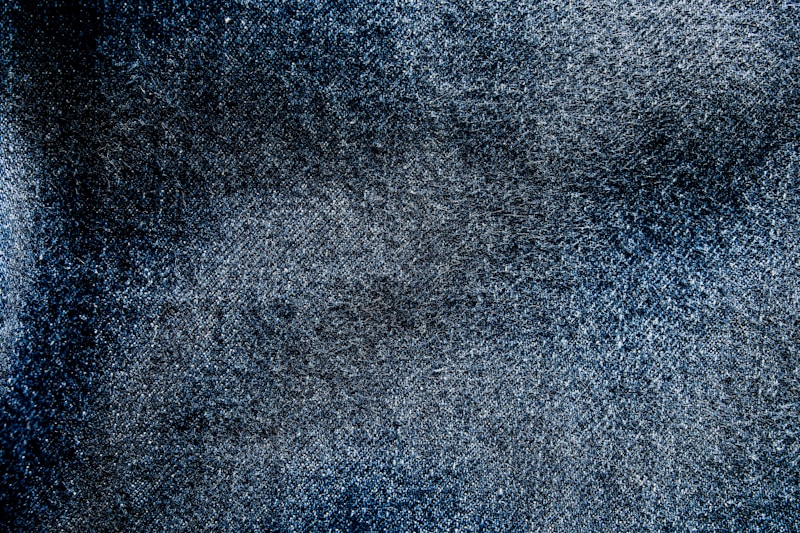The Significance of Fabric Choice: A Comprehensive Guide for Fashion Enthusiasts
Understanding the Importance of Fabric Choice in Fashion
When it comes to fashion, the fabric you choose can make or break your outfit. The significance of fabric choice goes beyond the aesthetic appeal; it impacts comfort, durability, and even the environmental footprint of your clothing. In this article, we will explore different types of fabrics, their characteristics, and how to choose the right one for your needs.
The Basics of Fabric Types
There is a vast array of fabric types available, each with unique properties. Let's take a closer look at some of the most common fabrics used in the fashion industry:
| Fabric Type | Characteristics | Best For |
| Cotton | Soft, breathable, and versatile | Casual wear, summer clothes, and undergarments |
| Silk | Smooth, shiny, luxurious | Evening wear, formal attire |
| Wool | Warm, durable, and insulating | Winter wear, suits, sweaters |
| Polyester | Durable, wrinkle-resistant, and easy to care for | Activewear, affordable everyday clothing |
| Linen | Lightweight, breathable, and quick-drying | Summer clothing, beachwear |
Why Fabric Choice Matters
Choosing the right fabric significantly affects your clothing experience. Here are some reasons why fabric choice matters:
1. Comfort
The right fabric can provide comfort throughout the day. For example, cotton is known for its softness, while silk can add a touch of luxury. If you live in a warmer climate, breathable fabrics like linen and cotton are preferable to avoid overheating.
2. Durability
Some fabrics are more durable than others. For instance, wool and polyester are known for their longevity, while delicate fabrics like silk require more careful handling. If you are investing in high-quality pieces, consider fabric durability to ensure longevity.
3. Care and Maintenance
Different fabrics require different care. While some fabrics, like polyester, are machine washable and easy to care for, others, like silk and wool, may need special washing procedures. Understanding how to care for fabrics can save you money in the long run.
4. Environmental Impact
In today's world, the choice of fabric can also reflect your environmental values. Organic cotton, hemp, and Tencel are sustainable options that are becoming increasingly popular among eco-conscious consumers. Choosing eco-friendly fabrics can help reduce the impact of the fashion industry on the environment.
Choosing the Right Fabric for Different Occasions
Knowing when to wear certain fabrics can enhance your overall style and comfort. Here’s a guide to help you choose based on occasions:
1. Casual Outings
For a casual day out, lightweight fabrics like cotton or linen are ideal. They offer breathability and comfort, making them suitable for warm weather. Pair a cotton T-shirt with linen shorts for a stylish summer look.
2. Formal Events
For formal occasions, fabric choice is crucial. Luxurious fabrics like silk or satin can elevate your outfit. Consider a silk blouse paired with tailored trousers for a sophisticated look at a wedding or gala.
3. Work Attire
Incorporating durable yet stylish fabrics into your professional wardrobe can boost confidence. Polyester blends or structured cotton can ensure that your clothing maintains its shape and appearance throughout the workday.
4. Activewear
When selecting fabrics for activewear, opt for those designed for performance. Polyester and spandex blends offer stretch and moisture-wicking properties, keeping you comfortable during workouts.
Frequently Asked Questions
Many people have various questions when it comes to fabric choices. Here are some common inquiries:
1. How do I know which fabric is best for my skin sensitivity?
If you have sensitive skin, opt for natural fabrics like cotton, bamboo, or silk, as they are less likely to irritate. Always check the label for fabric content before purchasing.
2. Can I mix different fabrics in one outfit?
Yes! Mixing fabrics can create interesting textures and visual appeal. Just ensure that the combined fabrics complement each other in terms of weight and style.
3. Are synthetic fabrics bad for the environment?
Synthetic fabrics can contribute to environmental issues, but their durability can also mean less waste. Opt for recycled polyester or seek brands focused on sustainable practices for a better choice.
The Future of Fabric Choices in Fashion
The fashion industry is continuously evolving, and so are fabric innovations. From biodegradable materials to 3D-printed textiles, advancements are being made for both aesthetic and environmental sustainability. Staying informed about new fabric technologies will allow you to make better choices as a consumer.

Conclusion
In conclusion, the significance of fabric choice cannot be understated. It plays a vital role in comfort, durability, care, and even sustainability. As you explore your wardrobe or shop for new pieces, consider the type of fabric that aligns with your lifestyle and values. Making informed choices will enhance not only your personal style but also contribute positively to the fashion industry as a whole. Keep in mind the essential factors we discussed, and you'll be on your way to becoming a fabric-savvy shopper!
Remember, the key to your style is not just in how you wear it but in the quality and type of fabric you choose. Happy shopping!